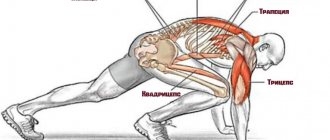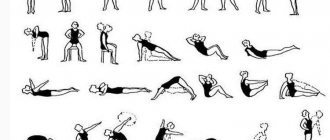Heavy periods are a problem that can make it difficult for a woman to function normally. And it's not just that during your period you go to the toilet too often, use too many hygiene products or constantly worry about stains on your clothes. This also increases the already unpleasant symptoms of menstruation and a general deterioration in well-being.
The source of heavy periods can be not only the individual physiology of a woman, but also various diseases. So if you're struggling with excessively heavy periods, consider whether it's time to see a doctor who can diagnose the causes and prescribe appropriate treatment.
Why does bleeding occur during menstruation?
This is a symptom of cyclic exfoliation of the endometrium, a special layer in the uterus. To understand how this happens, it is worth at least briefly tracing the individual phases of the menstrual cycle.
If we assume that the female cycle lasts on average 28 days (although the norm is from 21 to 35 days), we can distinguish four main stages:
- menstruation (on average 4-6 days);
- follicular phase (about 9 days);
- ovulation (1 day);
- luteal phase (approximately 14 days).
Phases of the menstrual cycle
Although it seems that menstruation is the end of the cycle, in reality this stage is considered its beginning. The first day of your period is also the first day of your cycle.
Female sex hormones stimulate the maturation of the egg, its release from the follicle, that is, ovulation, and the growth of the uterine mucosa, which prepares the organ for possible implantation of the embryo. At this time, the endometrium becomes adequately perfused, swollen and rich in nutrients.
If fertilization does not occur - and, therefore, the egg does not implant - the atrophic process of the uterine mucosa begins. Its surface layers begin to peel off and are brought out with blood. It is this moment that manifests itself in the form of monthly bleeding.
Unfortunately, bleeding is not the only symptom of menstruation.
The woman may also be accompanied by, among other things:
- pain in the abdominal cavity and lower spine,
- breast tightness, swelling and tenderness
- mood swings,
- slight increase in body weight,
- constipation, flatulence and diarrhea,
- general feeling of fatigue
- headache,
- acne.
Some symptoms may appear before menstruation and are associated with PMS - premenstrual syndrome.
It is important to understand that the symptoms of menstruation and the course of the entire cycle are an individual matter. It is worth adding that the first menstruation, called menarche, occurs in girls during puberty, between the ages of 9 and 16 years. The last is menopause, which occurs in mature women between the ages of 44 and 56 years.
You already know what your typical period should look like, but how do you know if your bleeding is normal?
Perform surgical operations
Of course, menstruation means blood loss, as do many surgical procedures. But the total amount of bleeding is not so terrible - 50-150 ml are lost during menstruation. Menstruation is still a contraindication to elective surgery? . In any case, if the operation is emergency, then there is no time to wait, but if it is planned, then this can be discussed with the doctor.
The vast majority of studies found no relationship between the risk of postoperative complications and the phase of the menstrual cycle. Therefore, when planning an operation, there is no need to strictly exclude the period of menstruation.
Tatiana Rumyantseva
At the same time, Tatyana Rumyantseva advises taking into account several factors:
- Severity of pain syndrome . If a woman experiences significant pain during menstruation, then she should not add postoperative pain to it.
- Blood loss. If a woman loses a large amount of blood with each menstruation, then she should carefully choose the time for operations that are associated with large blood loss, so as not to aggravate her condition.
- Hygiene . If a long period of rehabilitation is expected after surgery, it may not be worth planning it for the same period when a woman should pay special attention to her hygiene. And just lying down without menstruation is more comfortable than during it, if a woman uses pads.
How do heavy periods differ from normal and scanty periods?
Determining too heavy periods is not as easy as it might seem. Indeed, how does a woman, and especially a girl entering puberty, know what normal blood loss is during menstruation?
In fact, the physiology of women is different. Some women's period can last three days with little bleeding, while other women struggle to change pads, tampons or menstrual cups, and the bleeding only begins to subside after 6 days. In each of these cases, menstruation can occur in accordance with accepted norms, and differences arise only due to the individual predispositions of the female body.
If we talk about norms, it is assumed that normal menstruation should last on average from 4 to 6 days, but not less than 3 and not more than 7 days.
What about the amount of discharge? Ideally, a woman loses from 30 to 80 ml of blood. In the medical literature, the normal flow of menstrual blood is allowed to range from 10 to 100 ml. A heavy period, called hypermenorrhea, is diagnosed when the volume exceeds 80–100 ml.
The length of the cycle and the menstrual period itself usually do not change with heavy flow, although many women who struggle with excessive menstrual bleeding also complain of long periods. If menstruation, although regular, is too heavy and longer than normal, we may also come across the terms menorrhagia or menometrorrhagia. They also indicate very heavy periods and are called hemorrhagic periods.
It is also worth mentioning here the term hypomenorrhea, which means too short a period. The diagnosis is made when a woman loses less than 50 ml of blood or sees small, sometimes brownish, bloody discharge instead of normal blood loss. The lean period can last from a few hours to 2-3 days and may be irregular.
But let's get back to heavy menstruation. You're familiar with book standards, but you're probably wondering how to measure them?
Have sex
As for sex, researchers have long come to the conclusion: Can you have sex during a period?
that it is possible to have sex during menstruation. Once upon a time, when people did not have a running water supply with clean hot water at hand (and these times have passed quite recently and not everywhere), combining menstruation and sex was unhygienic, although this is unlikely to always stop it. During menstruation, the risk of contracting sexually transmitted infections is higher, but condoms are available for protection. The popular belief that sex during menstruation leads to endometriosis has not been confirmed. Does Period Sex Raise Your Risk of Endometriosis? .
Until now, no one knows exactly what exactly causes this disease. They suspect malfunctions in the functioning of the immune system, atypical structure of organs, genetics, but sexual contacts during menstruation are not on the list Endometriosis - Cause. .
Tatiana Rumyantseva
Obstetrician-gynecologist, candidate of medical sciences.
There is no evidence that sex during menstruation causes endometriosis. At the same time, the reflux of menstrual blood into the abdominal cavity is a common occurrence. Obviously, it is not fundamental in the development of endometriosis. Therefore, we do not yet know what exactly provokes its development.
How to check whether menstruation is already pathological or still normal?
It is not so easy to independently check the cause of heavy menstrual flow. Of course, you can count the used pads, tampons or menstrual cups, but still the calculations do not give an accurate result. For example, because when replacing a hygiene product we do not wait until complete absorption is achieved, each woman has her own concept of the time of replacement.
If you suspect that your periods are too heavy, you need to contact a gynecologist, who will more professionally assess the situation and prescribe tests to make an accurate diagnosis. Before contacting a gynecologist, you need to monitor the progress of menstruation in advance, as well as look at other symptoms.
The first question to ask yourself is: have you always had heavy periods or did they start suddenly?
Excessive menstrual bleeding may be accompanied by:
- formation of clots;
- weakness and tendency to get tired easily;
- prolongation of menstruation - 7 days or more;
- frequent need to replace hygiene products every 1-2 hours;
- severe menstrual pain in the lower abdomen and lower back.
Menstrual pain in the lower abdomen and lower back
. In addition, you may notice:
- pallor and dryness of the skin and mucous membranes;
- weakened condition of hair and nails;
- headache;
- problems with concentration;
- cardiopalmus;
- shortness of breath.
This means that excessive blood loss could lead to anemia. And this, of course, cannot be ignored.
Even if there are doubts, nothing prevents you from making an appointment, especially since heavy menstruation may indicate the presence of various disorders or diseases in the body.
How does nutrition affect the body and our well-being?
During menstruation, the following unpleasant sensations may appear: weakness, bloating, problems with digestive function, headaches from menstruation, cramps. The manifestation of these symptoms is associated not only with changes in hormonal levels, but also with the reaction to the foods consumed. Therefore, doctors recommend following a diet during menstruation.
An excess of fatty, heavy, smoked foods contributes to bloating before menstruation, that is, the symptom that appears intensifies. Sweets, which enter a woman’s body in large quantities, have a similar effect. Under the influence of sugar, the fermentation process in the intestines is activated, and the resulting gases begin to distend the abdominal area, causing increased menstrual pain.
During menstruation, progesterone is actively produced, resulting in an increase in blood pressure. If these days you eat food that has the same effect, the woman will feel a general malaise due to increased PMS and other uncomfortable sensations that appear.
Also, some foods can cause increased pain and excessive discharge. The impact can be associated not only directly with menstruation, but also with the emotional mood of a woman, since some food increases irritability and excitability.
To avoid this, you need to know how to eat during your period. A diet during menstruation will help improve your own well-being by easing discomfort.
Causes of heavy menstruation – when are they natural and when are they a symptom of a disease?
The tendency to have heavy menstruation can be, on the one hand, physiological, i.e. a natural feature of the female body, and on the other hand, indicate the occurrence of various anomalies or diseases.
Some women simply lose more blood during their periods, and this doesn't necessarily mean anything alarming. However, it is always worth thinking about the reasons.
Before we look at the list of potential medical conditions that can lead to heavy menstrual bleeding, it is worth mentioning that heavy periods after age 40, as well as the first ones during puberty, can be completely natural. In both cases, hormones are responsible for them, although their actions have different functions.
In young girls, the menstrual cycle is just stabilizing, and its duration, as well as the course of menstruation itself, may be abnormal. There may be heavy periods, but also scanty bleeding.
Menopause is a time when the endocrine system gradually suppresses the functions of the ovaries, which is also associated with changes in the regularity of menstrual cycles and their frequency or intensity of bleeding. Women during menopause may have long and heavy periods, on the one hand, and shortened ones, on the other, sometimes with spotting instead of bleeding.
There can be many other reasons for heavy periods. Basic:
- hormonal disorders,
- inflammation of the ovaries,
- polycystic ovary syndrome,
- ovarian cysts,
- endometriosis,
- endometrial polyps,
- uterine fibroids,
- pelvic inflammatory syndrome,
- thyroid disease,
- infections, including sexually transmitted diseases,
- blood diseases, including bleeding disorders,
- neoplastic changes in the genital tract, including endometrial cancer, cervical cancer,
- anatomical defects in the structure of the female genital tract,
- constant stress, neurosis and depression,
- miscarriages,
- ectopic pregnancy,
- anovulatory cycles,
- liver disease,
- kidney problems,
- diabetes mellitus, hypertension and other systemic diseases,
- long-term use of hormonal contraceptives,
- use of intrauterine contraceptives.
Uterine fibroids
As you can see, the above list is quite long and in any case not exhaustive.
If you have heavy periods, do not panic, but monitor your condition and, if necessary, consult a gynecologist.
What is not recommended to do during menstruation?
Physical exercise
The female body is not recommended to lift heavy objects or have a job with high physical labor throughout her life.
This is largely due to the characteristics of a woman’s ligamentous apparatus:
- The uterus is the organ that “suspends” in the pelvic cavity and it is very important to preserve it from youth.
- During physical activity, the entire ligamentous apparatus is vulnerable, it is easily subject to stretching and possible tearing.
- In addition, when performing any exercises, the blood circulation of the organ increases, and the rate of blood exchange also increases.
- And since the endometrial vessels have open ducts during menstruation, a woman may notice an increase in blood loss, which is accompanied by the appearance of a pulling or aching pain in the lower abdomen, a feeling of heaviness in the uterus. The blood comes out not only in large portions, but also with a large number of clots.
During the period of menstruation, you should completely abandon sports, or prefer partial exercise to a full-fledged activity. For girls whose physical activity in sports is just a hobby, it is better to completely eliminate it for the duration of menstruation. If the working conditions are associated with similar conditions, then gynecologists have the right to issue a certificate of transfer to light work at this time.
Sexual contacts
Many women may have heard from their gynecologist the concept of prohibiting sex during menstruation. The question of why it is actually not recommended to have sex during menstruation interests not only the woman, but also her partner.
In reality, the reasons for all this are quite simple:
- During menstruation, the surface of the mucous membrane of the uterine cavity is exposed, the old layer of cells is rejected, while a new one has not yet formed . During such a period of time, the blood vessels are very exposed, and there is a high probability of infection. The infection can get not only from an infected partner, but only from the surface of his genital organ, i.e. These are the microorganisms that would normally be classified as opportunistic.
- From a psychological point of view, the time of menstruation is unfavorable for having sex due to the discomfort that partners may feel. This is due to the release of blood, which not only has a fairly bright color, which can easily ruin things and lead to the appearance of stains that are difficult to remove, but also an unpleasant odor that comes from them.
- It is easy for a woman, as well as a man, to experience an orgasm at this moment due to the swelling of the mucous membranes, which narrows the width of the lumen in the vagina , but this condition during menstruation provokes a powerful flow of blood into the pelvic organs. Intercourse may be followed by high blood loss.
- Some couples believe that it is during their period that they cannot get pregnant, but scientists have now proven the opposite. Pregnancy may occur immediately after your period, especially if your cycle is short or irregular.
Visiting the sauna and taking a bath
During menstruation, a very important care item is to observe the rules of personal hygiene:
- or wash her external genitalia after every trip to the toilet, especially after defecation
- Douching at this stage is not the most favorable method for removing bloody discharge from the genital tract. The water should have a comfortable temperature, several degrees higher than room temperature. Under no circumstances should it be hot.
- During menstruation, a woman is not recommended to visit baths in some sense . That is, if a woman does not have a shower or bathroom in her living conditions, she can use a bathhouse, but this must be done extremely carefully. During your period, you should not take a steam bath, sit for a long time on hot devices such as shelves or benches, steam with brooms, or stay in a sauna.
An increase in temperature, particularly during menstruation, can cause serious bleeding from the genital tract. In addition, especially in public institutions, the risk of contracting any infection increases due to the possible penetration of the pathogen into the genitals. It may not always be inflammation of the uterus. During menstruation, a decrease in immune strength occurs, so vaginitis or vulvitis and inflammation of the Bartholin gland cyst often appear.
Visiting the bathhouse during menstruation should be extremely careful and should be used only as a way to take hygienic procedures.
Water treatments
With the advent of tampons, women no longer limit themselves to physical activity or visiting the pool, as well as open water bodies during menstruation. The only purpose at this time of using a tampon is to delay the release of blood from the genital tract.
But at the same time, almost no one thinks about whether it is safe to swim in pools or reservoirs during menstruation:
- In fact, even using a tampon can cause an infection in the genitals , and it will be more dangerous compared to swimming without a tampon. This is due to the fact that even if there is a tampon in the vaginal cavity, there is a possibility of water getting into it, which may contain various microorganisms.
- Based on this, a woman is advised to take a shower immediately after visiting a pond or swimming pool during her period and remove the tampon as quickly as possible. Infection contained in water can be quite dangerous, as it leads to the development of an atypical inflammatory process.
- Also, during menstruation, you should not have sex in bodies of water , as this leads to an even greater degree of infection of the upper genital tract.
Taking medications
During menstruation, many women, due to certain circumstances, are forced to take medications. For some, this is a measure of necessity for chronic somatic diseases. At the same time, for others it is a way to eliminate a disturbing pain symptom.
During menstruation, taking any medication is extremely undesirable, as it affects the functioning of the reproductive system and this effect will not always be favorable:
- If a woman has a chronic disease, especially hypertension, taking medications is mandatory , since failure to use the medications can lead to a surge in blood pressure and, consequently, the development of more heavy bleeding.
- To reduce pain, you should not use aspirin-based drugs, as well as analgin. The former lead to an effect on blood clotting and lead to a decrease in platelets, while Analgin should not be taken due to the possible development of coagulopathy. If a woman feels the need to use an anesthetic, then it is enough for her to take ibuprofen-based drugs during menstruation, as well as non-steroidal anti-inflammatory drugs of the latest generations, which selectively affect the hemostasis link.
- If there is excessive bleeding, hemostatic agents may be prescribed , but uncontrolled use should not be carried out.
Surgical interventions
- If surgical intervention is necessary, the attending physician of any specialty will ask the woman about the state of her menstrual cycle to set a date for the operation.
- To carry out the operation, it is important that the selected date does not coincide with your period. And this is no coincidence, because during menstruation not only a pronounced hormonal change occurs, but also a slight natural decrease in immune forces.
- Another feature of menstruation is a change in the blood coagulation system.
All of the above factors significantly affect not only the course of the operation, but also the further recovery period.
This significantly increases the likelihood of possible bleeding in the postoperative wound, as well as worse recovery and the addition of an infectious process. Such effects are extremely undesirable; if the operation is planned and falls during menstruation, then it should be postponed.
If the intervention is urgent, then menstruation is not an indication for a possible postponement of the operation.
Drinking alcohol
Women often face the question of whether it is possible to drink alcohol during menstruation, and what can happen subsequently.
Every doctor, regardless of his level of qualifications, can answer that the consumption of alcoholic beverages, even regardless of the day of the cycle, is contraindicated for females.
This is due to a negative impact on reproductive potential:
- Eggs - female reproductive cells are formed in the female body even before birth, therefore any exposure to harmful factors affects their condition throughout life. Women who are planning a pregnancy and are not currently using protection should especially be aware of this. When drinking alcohol during menstruation, the formation of a new egg is already underway, i.e. possible future genetic material needed for fertilization. If fertilization occurs after menstruation when a woman drank alcohol, then there is a possibility of having a weak child with developmental defects, as well as a possible miscarriage due to disorders of the genetic apparatus. At the stage of pregnancy planning, you should not drink alcohol, even during menstruation.
- Another negative aspect of drinking alcohol during menstruation is the vasodilating effect. After using this group of drugs, blood flow to the uterus increases and more severe bleeding may occur. This is especially important to know for women who drink alcohol during menstruation due to diseases such as uterine fibroids. In such a case, the uterus will not be able to contract well during menstruation and the discharge will continue for a long time.
Cosmetology procedures
Recently, an increasing number of women have resorted to such types of procedures as peelings, tattooing, biorevitalization, plasma lifting, body wraps, hair and eyebrow dyeing, manicures and much more.
Often the procedures are carried out repeatedly and the next session may fall during your period, as well as a preliminary appointment with a specialist. But every professional, before carrying out any manipulation, must warn the woman that it is better not to carry out these procedures during menstruation.
This is due to many factors:
- The main one is hormonal imbalance in the body , which is why in some cases the effect may not be as desired as we would like, especially for tattoos or microblading.
- There is a decrease in protective immune forces during menstruation , because of this there is a possibility of developing an inflammatory process, especially during facial cleansing, peeling, and also sugaring or hair removal procedures. A woman experiences skin redness, inflammation, infection, or suppuration of lesions.
- A manicure done during menstruation lasts much less time compared to one done before or after.
There is also some discomfort during a number of procedures, since the discharge may be profuse or have an unpleasant odor, which can confuse the woman or the specialist.
Nutrition
Throughout any age period, every woman at least once tries to change her diet and rebuild her eating habits.
During menstruation, you should not limit yourself in nutrients.
There are many reasons for this:
- During menstruation, a natural process of blood loss occurs ; hemoglobin, a substance necessary for the body’s functioning, is removed from the body. At this time, to avoid dizziness, weakness, etc. You need to eat foods rich in protein and iron. This is meat, offal, buckwheat, etc.
- In addition, during menstruation, a new egg matures , which means that the reproductive system requires a large amount of useful substances, such as fats and proteins. A calorie deficit in the diet leads to insufficient supply to the ovaries.
Girls on diets face problems with delays or cycle failure. With prolonged lack of nutrients, destruction of the tissue of the gonads occurs. Nutrition issues must be approached responsibly and not only during menstruation.
Research
During menstruation, some women are faced with the issue of conducting research. This is not always necessary to assess the state of the reproductive system; somatic pathology can also serve as an indication.
Many doctors can delay the time of diagnostic procedures after the end of menstruation:
- This is due to the fact that against the background of altered hormonal levels, a shift occurs in laboratory parameters . Even a general clinical blood test detects changes that will not be the same after the menstrual cycle. The state of anemia or an increase in the erythrocyte sedimentation rate returns to normal after the cessation of menstruation, and sometimes the transaminase ratio changes.
- As for instrumental research methods , it is preferable to do an ultrasound scan after the end of menstruation, since the cavity may contain unrejected endometrium or accumulated blood, which prevents clear visualization of the organ.
- other diagnostic methods due to the woman’s possible weakness, poor health, etc.
Drugs for heavy menstruation - pharmacological treatment of heavy menstrual bleeding
Treatment for heavy periods always depends on the source of the problem. If this is just a matter of physiology, and the consequences of bleeding are not devastating to health, then any pharmacological treatments are unlikely to be needed. However, if the patient is diagnosed with anemia that develops as a result of heavy menstruation, the doctor will prescribe appropriate therapy. The gynecologist will recommend iron supplements and other medications used to treat anemia.
Iron supplement
Hormone therapy is also used in the medical treatment of heavy menstruation. The effect of this treatment is the cessation of heavy menstruation to light bleeding. This is a common effect of taking hormonal pills, including birth control or hormonal patches.
If for any reason you cannot or do not want to use hormone therapy, your doctor may prescribe specialized bleeding medications.
Can I use over-the-counter medications for heavy periods? Only if their causes are not related to specific diseases, which is confirmed by the results of ultrasound and tests.
Non-steroidal anti-inflammatory drugs can also be used to relieve symptoms of excessively heavy periods.
However, if there is a medical condition underlying heavy menstruation, the doctor will determine the most appropriate treatment method after a thorough diagnosis.
Treatment of heavy periods
Treatment usually depends on the cause of your heavy periods. At the appointment, the main thing is to find out whether this is an acute problem that requires immediate intervention.
If the problem has existed for a long time, then only after hormone tests and a smear can the necessary treatment be selected. Heavy periods after childbirth are special - you need to rule out infection, fibroids, but don’t panic right away - perhaps the body is simply rebuilding, tone is being restored, or it’s just normal postpartum discharge.
After a thorough examination of the whole body to determine the etiology of bleeding, the doctor prescribes the following drugs
- iron supplements to prevent anemia;
- NSAIDs (for example, ibuprofen, ketonal, nimesil), to relieve pain, it is important to start drinking them a few days before the start of the cycle;
- gestagens - analogues of progestron, which are intended for the treatment of menstrual irregularities; when used correctly, they quickly lead to the normalization of menstruation and a reduction in blood loss;
- combined contraceptives - if a woman needs not only to maintain the effect of treatment (for example, after a course of gestagen therapy), but also reliable protection against unwanted pregnancy;
- tranexamic acid, a means to quickly stop bleeding, which can be used as an SOS remedy in case of sudden increase in discharge.
For very heavy bleeding that requires immediate action, surgical techniques are used:
- Dilation and curettage (curettage of the endometrium followed by histological analysis). A rather undesirable and traumatic procedure, which is carried out almost by touch without visualizing the field of activity. Or a less traumatic procedure of vacuum aspiration.
- Hysteroscopy with removal of polyps if they are the cause of the problem.
- In the most severe cases, removal of the uterus. That is why it is so important to contact a specialist in a timely manner and solve the problem without taking emergency measures.
One in five women has a problem with their cycle2, which can result in heavy periods. But due to the small amount of information and the long stigmatization of this topic, it is wrong to assume that this is how it should be.
Modern drugs can solve a wide range of problems. They are well studied and have undergone many tests. All myths associated with undesirable effects date back to the 1960s, when these drugs first began to be produced. Modern tablets differ from them like an airplane from a hot air balloon.
It is important to understand that no matter what changes in your cycle, you do not have to suffer alone. There is no place for embarrassment and inconvenience. You don't have to endure discomfort. This situation can be resolved quite quickly at a doctor’s appointment. One preventive appointment per year, timely treatment when symptoms occur and correctly selected medications, which will also preserve your reproductive health, will make you healthy, and heavy menstruation will no longer cause you discomfort.
Womenfirst
- Fernández-Gaxiola AC, De-Regil LM. Intermittent iron supplementation for reducing anemia and its associated impairments in menstruating women. Cochrane Database of Systematic Reviews 2011, Issue 12. Art. No.: CD009218. DOI: 10.1002/14651858.CD009218.pub2.
- Phillip CS, Faiz A, Dowling NF, Beckman M, Owens S, Ayers C, Bachmann G. Development of a screening tool for identifying women with menorrhagia for hemostatic evaluation. American Journal of Obstetrics & Gynecology 2008;198:163.e1–163.e8.
- Gynecology: national guide / ed. G. M. Savelyeva, G. T. Sukhikh, V. N. Serov, V. E. Radzinsky, I. B. Manukhin. — 2nd ed., revised. and additional - M.: GEOTAR-Media, 2021. - 1008 p.
- Guide to outpatient care in obstetrics and gynecology / Ed. V.N. Serova, G.T. Sukhikh, V.N. Prilepskoy, V.E. Radzinsky. - 3rd ed. - M.: GEOTAR-Media, 2021. - 1136 p.
RUDFS182372 dated 10/02/2018
How to Reduce Heavy Periods on Your Own – Home Remedies for Excessive Bleeding
What can you do to make your periods less heavy? If your heavy periods are not the result of a specific medical condition, you can reduce the bleeding with home remedies.
The following may help reduce bleeding during menstruation:
- A properly balanced diet, which should include fish, legumes, eggs;
- Avoid alcohol and energy drinks during this time and limit the consumption of strong coffee;
- Refusal of excessive physical activity, hot baths and sunbathing, warming the abdominal area with a heating pad, which, on the one hand, can relieve pain, and on the other, increase bleeding;
- Taking painkillers that do not contain acetylsalicylic acid;
- Drinking infusions of ginger, nettle, chamomile, and yarrow extract.
Important! If iron drops significantly during heavy menstruation, you need to supplement this element.
ONLINE REGISTRATION at the DIANA clinic
You can sign up by calling the toll-free phone number 8-800-707-15-60 or filling out the contact form. In this case, we will contact you ourselves.
If you find an error, please select a piece of text and press Ctrl+Enter









